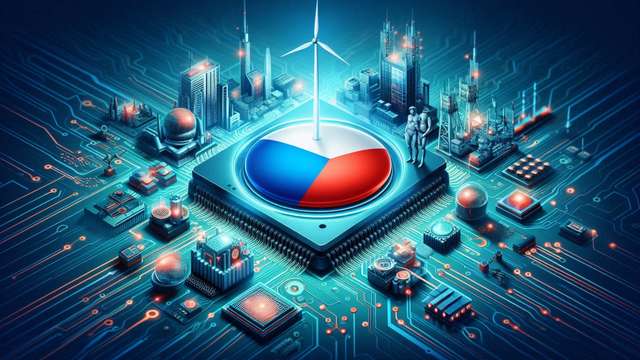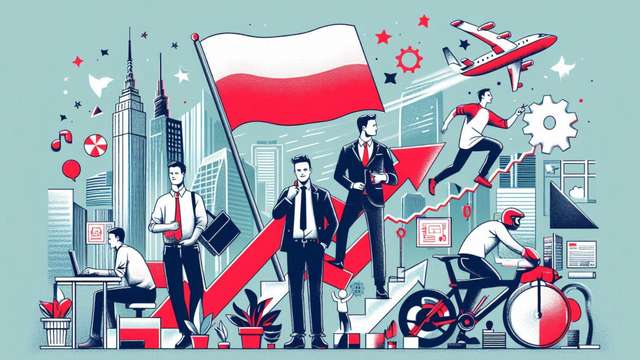
Automation Trader treated June as a month in which special emphasis should be placed on the environment and talks about an ecological approach to the industry. What can you do? Why is it so important? Finally, what are the benefits? All these topics have already been discussed in our pages, but it is still not the end.
Table of Contents
Ecology in industry is a great system of connected vessels. Revolution 4.0, which we wrote about in a separate text, is taking place before our eyes. One of its components is to focus on ecological solutions, especially in terms of production.
But what is this "green game" really about? Looking at the topic through the prism of production, it is mainly about such changes in the entire process that ultimately bring tangible profits to the environment and give them not only long-term financial benefits (return on investment), but also improve their perception by customers. It is of great importance, especially because customers prefer to invest their money in these entities, which share their related philosophies. This ecological one, in turn, is particularly popular.
Great production = great expenditure
According to a research conducted by Godwin University in 2020, as many as 70 percent of Americans consider production to be the most important branch of the economy. In the case of the United States, it is not only an assumption, but also a representation of the facts. It is here that the greatest amount of money is invested and it is also in this area that people most often try to climb the career ladder.
So, since innovation and the awareness of ecological solutions that go hand in hand with it are increasingly on the banners, the industry related to production could not stay behind in this matter.
Green production is the whole philosophy, the goal of which is to make changes that allow you to reduce the consumption of natural resources, CO2 emissions, pollution and waste. For in order to "take out" something, you first have to "put it in" and it is exactly the same in the case of a production mechanism, which requires a huge investment. These can be sub-divided raw materials and manpower. In this first aspect, we are talking about really big values. As the European Union informed in its report, in the countries belonging to the community an average of 15.6 tons of production raw materials are consumed per capita. 12.5 tonnes are materials from the EU, and when it comes to their use in the countries of the community, we are talking about a value of 14.6 tonnes.
Summing it up, we get really gigantic values, and obtaining such a quantity of raw materials generates not only considerable costs, but also has a negative impact on the environment. No wonder that introducing changes in this area has become not only a need, but even a requirement. This is stated in special EU directives, and widely promoted subsidy programs make the issue of adapting the company to the requirements of the new times easier. The media also has a role to play here, as it awards each year those companies and enterprises that invest the most in green production.
Play green
The basis of green production is therefore to achieve a state in which it will be possible to use less raw materials and energy. This state of affairs is regulated by appropriate regulations, but apart from the "top-down" pressure, entrepreneurs more and more often start acting on their own initiative. Reason? The simplest possible - money saving. This, depending on the industry and energy consumption, may be even several dozen percent. The cheaper production costs, in turn, the more money left on your account.
When considering the above-mentioned regulations, the first thing to mention is the European Green Deal, which sets goals in the perspective of up to 2050. Its main points are:
- investments in environmentally friendly technologies
- supporting industrial innovation
- introducing cheaper and healthier forms of transport
- decarbonisation of the energy sector
- ensuring greater energy efficiency of production buildings
- working with international partners to improve global environmental standards.
The European Union's strategy assumes that the continent is to become climate neutral by the middle of the century. - Industry is one of the most energy-consuming branches of the economy. Only in 2013-18, CO2 emissions from industrial installations in Europe decreased by only 0.3 percent - said Mariusz Łoboda from Eaton, a specialist in this field.
It should also be mentioned that in addition to the already mentioned legal requirements and paying attention to customer preferences, business partners also play an important role in this puzzle. Their expectations in this respect are growing every year, and the awareness of the stake for which the game is at stake is fuller. - We see a strong trend of expectations from market participants, financing institutions, business partners, investors and customers towards companies - said Piotr Rowiński, partner at PwC Polska.
So some processes had already started, but it could not be otherwise. The numbers that are the best proof of how the industry affects the environment are staggering. Suffice it to say that 21 percent of the share of greenhouse gas production is a matter of factories, to know that the game is not at high stakes. According to the research of the aforementioned Godwin University, it reduces gas emissions and carbon footprint by 24 percent, and can bring annual savings of up to $ 10 billion. So if the argument struggle to protect the space in which we live is not very goes, then maybe it will convince the arguments of a financial nature. In both cases, we shoot for one goal.






